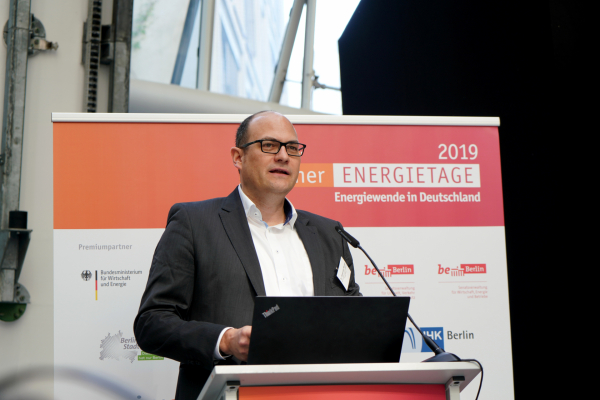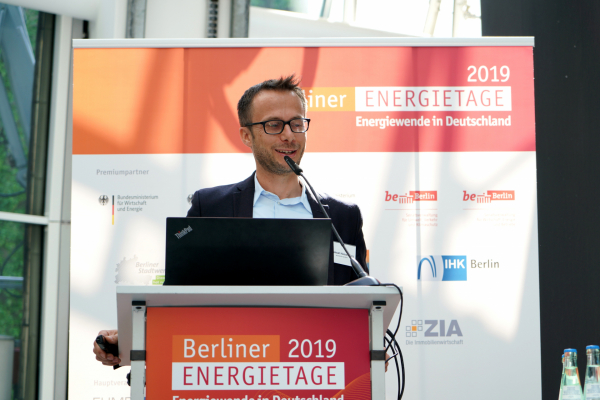Standardization, Industrialization, Digitization
Faster steps to climate-neutral building stock
Further efforts are needed to achieve the climate protection targets. This was also the tenor of two events on Tuesday at the Berlin Energy Days: In a series of lectures by the Federal Ministry of Economics and Energy (BMWi), experts presented "Innovative solutions for existing buildings", and in the evening the Bergische Universität Wuppertal presented the international Solar Decathlon Europe 2021 competition. Student teams can apply here with ideas that, among other things, aim at a resource-efficient and climate-neutral city.
The topic "Energy Sprong" was the central theme of the lectures and discussions at the BMWi's morning event. With this principle, also known as "serial refurbishment", architects and building planners rely on digitised, standardised processes. Prefabricated construction and technical elements are used on the construction site. It is a holistic concept that includes both façade elements and building services.
At the moment we are jumping into practice
Emmanuel Heisenberg, Managing Director of the Berlin company ecoworks, has described how the Energy Sprong Principle can be implemented in practice. His company is currently using the process for the first time in buildings in Hameln and Cologne. "Initially, the buildings will be digitally planned. The calculations are sent to the production plant. Here, the facades including windows and roof elements are produced and then brought to the construction site," explained Heisenberg. This is an improvement on conventional processes, where 95% of the production takes place on the construction site. Heating heat and hot water are generated by a heat pump in a container placed in front of the building. The required energy comes from photovoltaic systems on the roof and from heat recovery from the ventilation systems integrated into the windows.
Since the refurbishment time is reduced to a few weeks with the energy sprong principle, conflicts with tenants can be avoided and the acceptance of the measures can be increased. This is also an essential advantage for Ewald Ernst, board member of the Oberricklingen building cooperative, as he emphasised in his presentation. In a multi-family house of his building cooperative, renovations will soon be carried out according to the Energy Sprong method.



